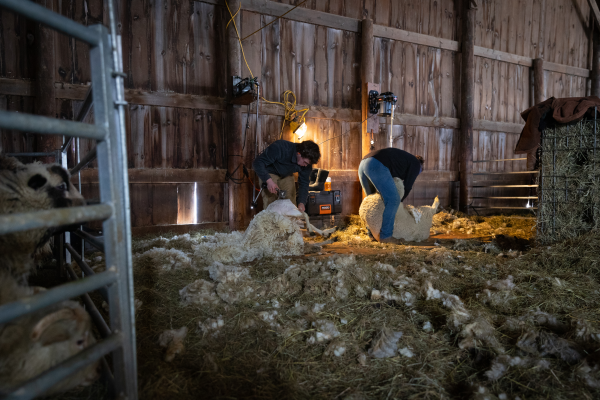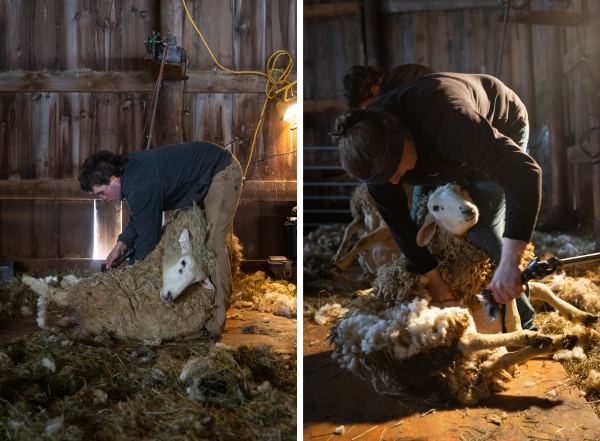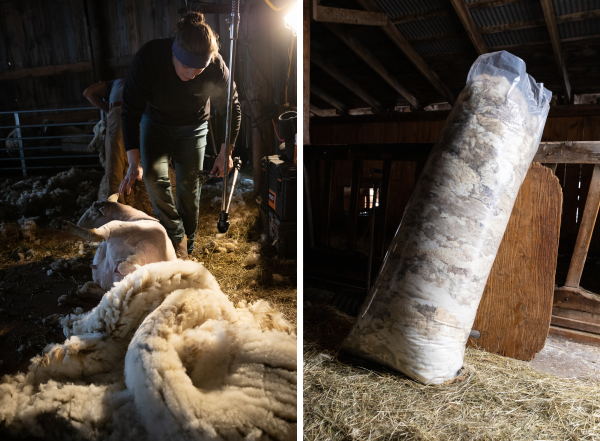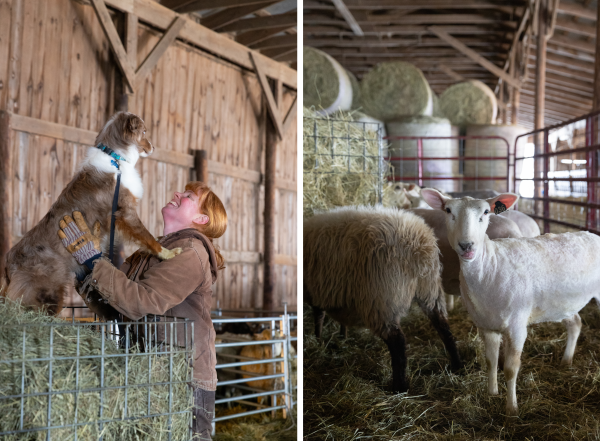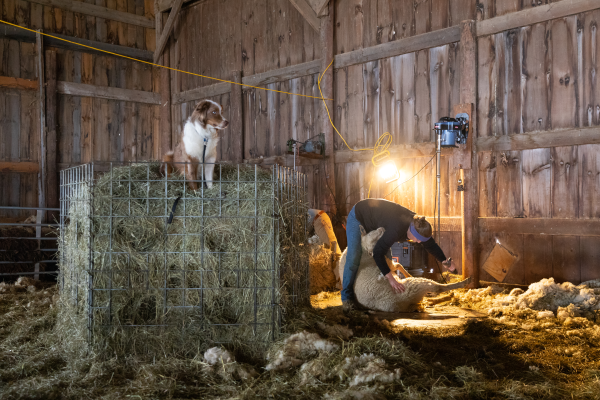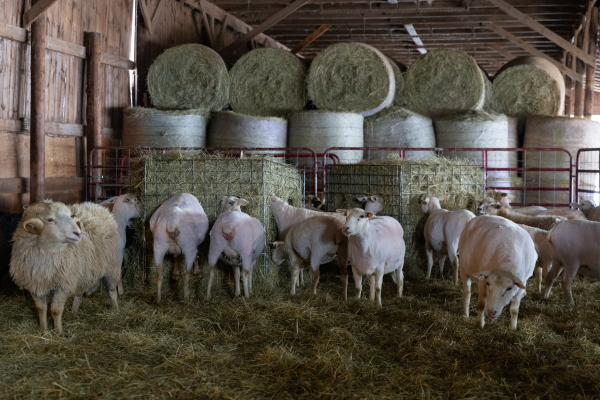WOULD LOVE TO SEE A VIDEO OF THIS PROCESS! :)
Every winter, we shear our sheep at the Dairy, where the sheep spend the winter. In preparation for lambing, our flock of sheep get their yearly haircuts by two Vermont-based professional shearers hired for the day. We asked Herdsman Renee LaCoss about the process, and got answers to the most commonly asked questions:
Why do we shear in February?
A lot of people shear later into the spring during warmer weather. It’s really the farmer’s preference. For many reasons, we choose to shear before lambing, which will be in late February this year. If we try to shear ewes after they've lambed, it can be stressful for them and their lambs to be separated during the shearing. It can also be confusing when the ewes return to their lambs post-shearing because they smell different without their full coat, since their skin smells different than their wool. With the difference in smells, the lambs sometimes won’t recognize their mothers.
We also shear before lambing because it’s easier for the lambs to find the ewe’s teats without all the wool in the way. Lambs can get confused and try to nurse on pieces of wool thinking the wool is a teat. This really only happens when they’re newborns—when they’re older they can figure it out—but since lambs are born with such little body fat, they need to eat very quickly after birth.
And finally, the wool is cleaner when we shear in February because it doesn't spend all winter getting dirtied in close indoor quarters. (The sheep are 6-8" inches "thinner" without that wool, too).
Don’t the sheep get cold without their wool in winter?
Sheep actually generate quite a bit of body heat while they digest their food, and they keep themselves very warm this way. I remember last year, a few days after they were shorn, it was 40ºF outside, and they were all panting in the barn! And since we shear before lambing, they’re also pregnant, which generates a lot of heat, too. And once that wool is off, they REALLY love to scratch all those itches they couldn’t get at for the past year!
Who shears our sheep?
We've worked with a few professional shearers throughout the years, including Mary Lake, Liz Willis, Kathleen Markiewicz, and Ian Irwin; his grandfather was our shearer for years and recently retired.
What happens to the wool?
The big bags of wool collected during shearing day goes to a few places. Some goes to the Education Team, which uses it during programs and for daily activities in the Children’s Farmyard. This year, we're also sending wool to Green Mountain Spinnery to be spun into yarn for purchase at our Farm Story & Welcome Center.
But not all our sheep are sheared in February! The small Children’s Farmyard herd will be shorn on Sunday, April 7 during our Sheep & Shear Delights program. Come in and spend the morning learning about all things wool for $5 per person, no registration required. We raise our larger herd to be a staple, pastured-raised protein on our Inn Restaurant menu, a true farm to table dining experience.

